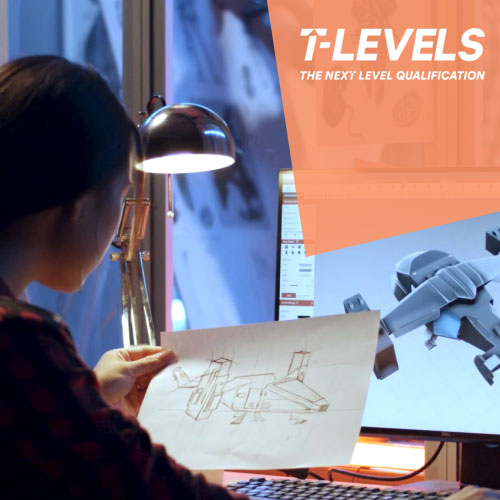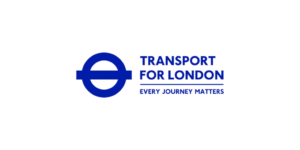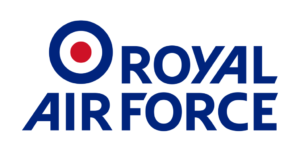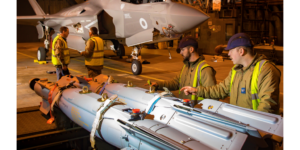
Design Engineer careers guide
Design engineering… it’s where art meets science.
How much money can you earn as a Design Engineer?
These LMI Job Trends give you a sneak peek of how much you could earn starting out for this career, and how much your salary could grow with experience.
Average salary for Design Engineering jobs
Recent labour market information says you can earn up to £55,000 a year on average as a design engineer in the UK.
Your starting salary can vary because of factors like level of experience, training, or location. Your salary will increase over time as you build skills, knowledge and experience.
Engineering Career FAQs & Insights
Is there something you’d like to know about engineering careers? Maybe we can help!
Skills you need to become a Design Engineer
Useful skills to put in your CV:
- Good problem solving skills and an enquiring mind – think about how you prefer to solve problems. On your own, or in a team? Both approaches can work. You will often need to spot a problem, consider what tools and techniques might help, carry out a plan to fix the problem then test to see if your solution worked.
- Good organisation skills – this will help you with your education and training, and also with helping you to make sure projects are done on time. Organisation will help you with researching new ideas and presenting your discoveries to others. It will also help you plan how to use software tricks like animation and 3D models to your designs.
- Teamworking skills – you could work as part of an engineering team led by a senior engineer. As you progress in your career, you’ll also build leadership and project management skills.
- Good communication skills – you will be able to present your work by email, over the phone, face to face in meetings, and even through presentations.
- Good IT skills – engineering is using computers and digital technology more and more these days.
Top Skills-boosting Tip
Keep exploring software and the digital world. Engineering is using computers and digital technology more and more these days – and the same goes for the world of design! Your work is partly creative and visual but needs to be very precise and accurate, often using the latest tech.
How Do You Get These Skills?
Vocational qualifications and work experience will help you build these skills over time.

Build Your Skills With the FREE Young Professional Programme
What Qualifications & Training Do You Need For Design Engineering Careers?
School, college and training
You can start heading down a design engineering path by becoming a CAD technician as a school leaver – and you don’t need A-levels or the equivalent to get started.
You will usually need passing grades of 9-4 (A*-C) in at least four GCSEs or their equivalent including English, maths and a science subject. Other useful subjects include D&T, ICT, computing and engineering.
It may benefit you to take 2 to 3 A-levels or their equivalent, covering at least one subject related to science, maths, ICT or engineering.
School will give you a good foundation education in the engineering principles you might need to know. It will also help you to apply for further education such as a degree.
The Institution of Design Engineers has information on courses which can help you use CAD (Computer Aided Design) software that is a big feature of design engineering.
Vocational Qualifications
As an alternative to A-levels, you can study a vocational course like a Tech-level in Engineering. From there, you could think about doing an HNC/HND or foundation degree in one of the following subjects:
- Engineering product design
- Industrial design
- Computer-aided design engineering.
The Engineering Council has a list of qualifications and courses.
T-Levels
T-Levels are a choice for learners after GCSEs alongside apprenticeships and A-levels. You can do a T-Level in design and development for engineering and manufacturing. This Level 3 qualification can help you progress into becoming a CAD technician, 3D printing technician or, with extra training and experience, a design engineer.
BTECs
As an alternative to A-Levels, you can do BTECs from the age of 16. The BTEC Level 3 Extended Diploma in Civil Engineering gives you the specialist knowledge and technical skills to progress into, for example, an apprenticeship or employment. One of the things you’ll learn is engineering product design.
Apprenticeships
An apprenticeship is a scheme where you train while earning a starting salary.
With an apprenticeship (or advanced apprenticeship) you’ll have a paid job with an employer that includes structured training and learning. This training leads to an official qualification that’s recognised by employers as an industry standard.
You could apply for an advanced apprenticeship in:
- Engineering
- Digital Design
- Design Engineering
- Built Environment
- Manufacturing Design
You can also seek out design engineering apprenticeships with organisations like Find an Apprenticeship.
University degrees and graduates
You could benefit from completing a foundation degree or degree to help you get into design engineering. Many design engineers enter the profession as graduates.
Useful degrees and foundation degrees to consider include
- Engineering product design
- Industrial design
- Computer aided design engineering
- Engineering design and manufacture
- Materials science
Qualifications related to mechanical engineering, civil engineering and electrical engineering may also help you progress in your career.
UCAS has more information on degree courses and entry requirements.
Career Progression
Design engineering gives you the chance to work in different industries like construction, engineering, electronics and renewable energy – so there’s a lot of variety in the work you can do.
If you become a Chartered Engineer you will find it easier to get project management roles or specialise in your chosen field. It can also help you strike out on your own and do consultancy work.
What Work Experience Do You Need For Design Engineering Jobs?
Work Experience Tips
It can help you decide if this is the right career for you if you have previously done work experience in an engineering environment, especially if design is involved. Work experience in a digital environment can also help you build useful skills.
Any work experience where you have demonstrated your CAD design software skills or digital/design skills can help your application.
Examples of relevant work experience include:
- Work shadowing (even if it’s just for a day)
- Work placements in a company
- Work experience placements on a college or university course
If you’re a Year 12 student, you can apply for a Nuffield Research Placement. Over 1,000 students a year get the chance to work with scientists, mathematicians and engineers from all kinds of universities and organisations.
Volunteering Tips
You can build your engineering design skills for free in your own time, and that could help you get work experience! There are lots of free CAD (Computer Aided Design) software apps for beginners available, and this is frequently used by design engineers. For example, AutoCAD software is easy to learn and will help you get the hang of doing 2D drawings. There are plenty of AutoCAD tutorials online for you to try. AutoDesk’s Fusion 360 software will help you learn 3D modelling and is free for students.
Top free CAD software changes all the time, so do your research and have a go.
If you’re aged 21 or under, you could build experience and skills relevant to design and engineering by becoming an Industrial Cadet. You’ll join other students from local schools to take part in industry based activities with a local employer. Visit industrialcadets.org.uk for more info.
If you’re still at school, one way to expand a range of engineering skills (including design) is to join a school STEM club.
What Does a Design Engineer Do?
Design engineering isn’t just about what you know. It’s about what you can imagine!
The variety in your career path could be huge. Design engineers work in 3D printing, design exhausts for fighter aircraft, and redesign mobile phones.

Example daily job responsibilities
- Researching new ideas and improvements
- Using maths-based modelling to check how workable those new ideas are in real life
- Using design software to create technical drawings and plans for new product prototypes
- Testing prototypes to see how well they work and what might need improving
- Tweaking designs as needed before the final product gets made
- Reporting to clients and managers on how the design project is going
How To Find Design Engineering Jobs: Next Steps
To find jobs for young people in this role, search on jobs boards for early career roles and opportunities with these words in the title:
- Design engineering apprenticeshipa
- Advanced apprenticeshipa – design engineering
- Design engineering graduate schemes
- CAD technician apprenticeships
You can also take a look at our database of local opportunities to see if there are any relevant jobs, work placements, or careers events and workshops to help you get started.
These websites might be able to help you find design engineering experience or a role that’s a good fit for you:
Get Into Manufacturing & Engineering Careers With Youth-Friendly Employers
These employers and organisations are here to help. They care about your potential and desire to learn, not just your qualifications and experience. They may be able to offer traineeships, apprenticeships, graduate schemes, first jobs, careers advice, wellbeing support and much more.
Engineering Career Tips & Opportunities
Engineering & Manufacturing Career Guides
View job descriptions with average UK salary, useful qualifications and a variety of routes into this career.
Digital Career Guides
View job descriptions with average UK salary, useful qualifications and a variety of routes into this career.
See All Our Youth-Friendly Employers

























YES! I Want More Free Careers Help...
So what are you waiting for? Grab your future.



































